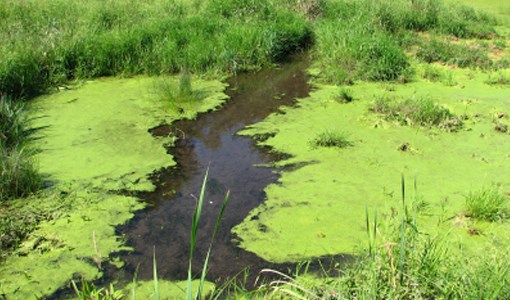The ongoing heat wave means many Prince George residents are heading to one of the area's lakes to cool off.
However, swimming may pose health risks. Cooking with lake water, even boiled, can also be a hazard.
One potential issue is blue-green algae. Its blooms are naturally occurring and can look like scum, grass clippings, fuzz or globs on the surface of water, Northern Health explains.
Despite its name, blue-green algae can be blue-green, greenish-brown, brown, or pinkish-red, and may smell musty or grassy.
People who come in contact with or ingest blue-green algae may experience skin irritation, rash, sore throat, sore red eyes, swollen lips, fever, nausea and vomiting or diarrhea. Symptoms usually appear within one to three hours and resolve in one to two days. Symptoms in children are often more pronounced.
Residents living near the shores of lakes, as well as visitors and those making day-use of lakes, are advised to take the following precautions:
- Avoid all contact with blue-green algae blooms. If contact occurs, wash with tap water as soon as possible.
- Do not swim or wade (or allow your pets to swim or wade) in any areas where blue-green algae is visible.
- Northern Health recommends that visitors and residents do not drink or cook with untreated water directly from any lake at any time. Boiling lake water will not remove the toxins produced by blue-green algae.
- An alternate source of drinking water should also be provided for pets and livestock.
- To avoid the potential for illness, animal owners should be wary of allowing pets to walk off-leash where they may be able to drink lake water.



